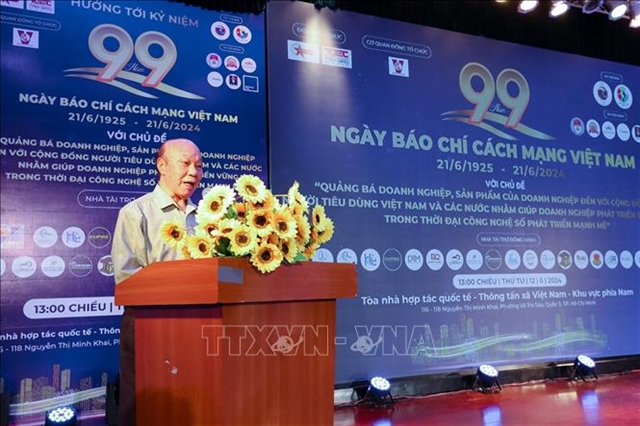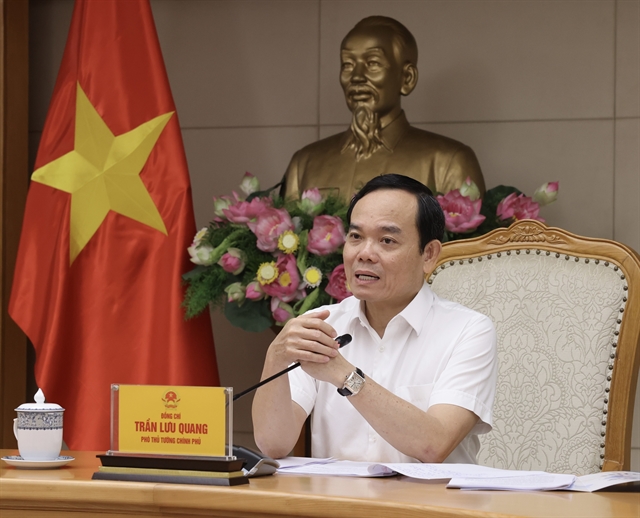 Society
Society

 |
| Deputy Prime Minister Trần Lưu Quang chairs the meeting on the national plan to revamp the media landscape on Wednesday. — VNA/VNS Photo Bùi Lâm Khánh |
HÀ NỘI — The Government is working on a national plan to modernise and streamline Việt Nam's media landscape by 2030.
Deputy Prime Minister Trần Lưu Quang chaired a meeting on Wednesday focusing on crafting the plan.
Speaking at the meeting, a Ministry of Information and Communications representative cited Việt Nam's press network, including radio, television and print outlets, as a vital tool for government communication, a source of public knowledge and a bridge for international understanding.
He acknowledged significant strides made in recent years, with improved quality in media outlets catering to the public's evolving needs.
News agencies have also been proactive, diversifying their activities and fostering collaboration to enhance information quality and efficiency.
However, challenges remain as the modernisation of infrastructure has not kept pace with changing needs and investment falls short of what's required for optimal development.
While existing policies are gradually being refined, they still have not fully caught up with the demands of a rapidly evolving media landscape. Issues like tax structures, support mechanisms and content commissions require further attention.
All these challenges have exposed the need for a comprehensive national plan to help the media keep up with the times.
The representative revealed that the ministry is creating a Master Plan for the Development of Press, Radio, Television and Publishing between 2021 and 2030.
Its core objective is to streamline the journalism network, ensuring it effectively serves political goals, fuels economic growth and fulfils the public's desire for a rich and diverse information and cultural experience.
The plan emphasises digital transformation, innovative management and audience-centric content delivery across platforms. Investing in modern infrastructure, adopting cutting-edge technology and developing a skilled workforce are key to achieving these goals.
The meeting concluded with Deputy PM Quang emphasising the importance of a clear and well-defined plan, which must outline the significance of the targeted media sectors, development goals for the future and measures to achieve them.
He assigned the ministry the task of further refining the plan, ensuring practicality and compliance with existing regulations. Open discussions with stakeholders across various sectors will be encouraged to solicit diverse perspectives.
The ministry has recently introduced Circular No 05 on establishing norms for public services in the journalism sector, which is scheduled to take effect on August 1.
Per the circular, press agencies under the ministry's management will design a system of norms for themselves and submit it to the ministry for consideration. Meanwhile, Vietnam News Agency, Vietnam Television and Voice of Vietnam will be granted the authority to decide on their own.
The circular is expected to fill the legal gap in norms and create a more favourable environment for press agencies to improve their autonomy and capabilities. — VNS




